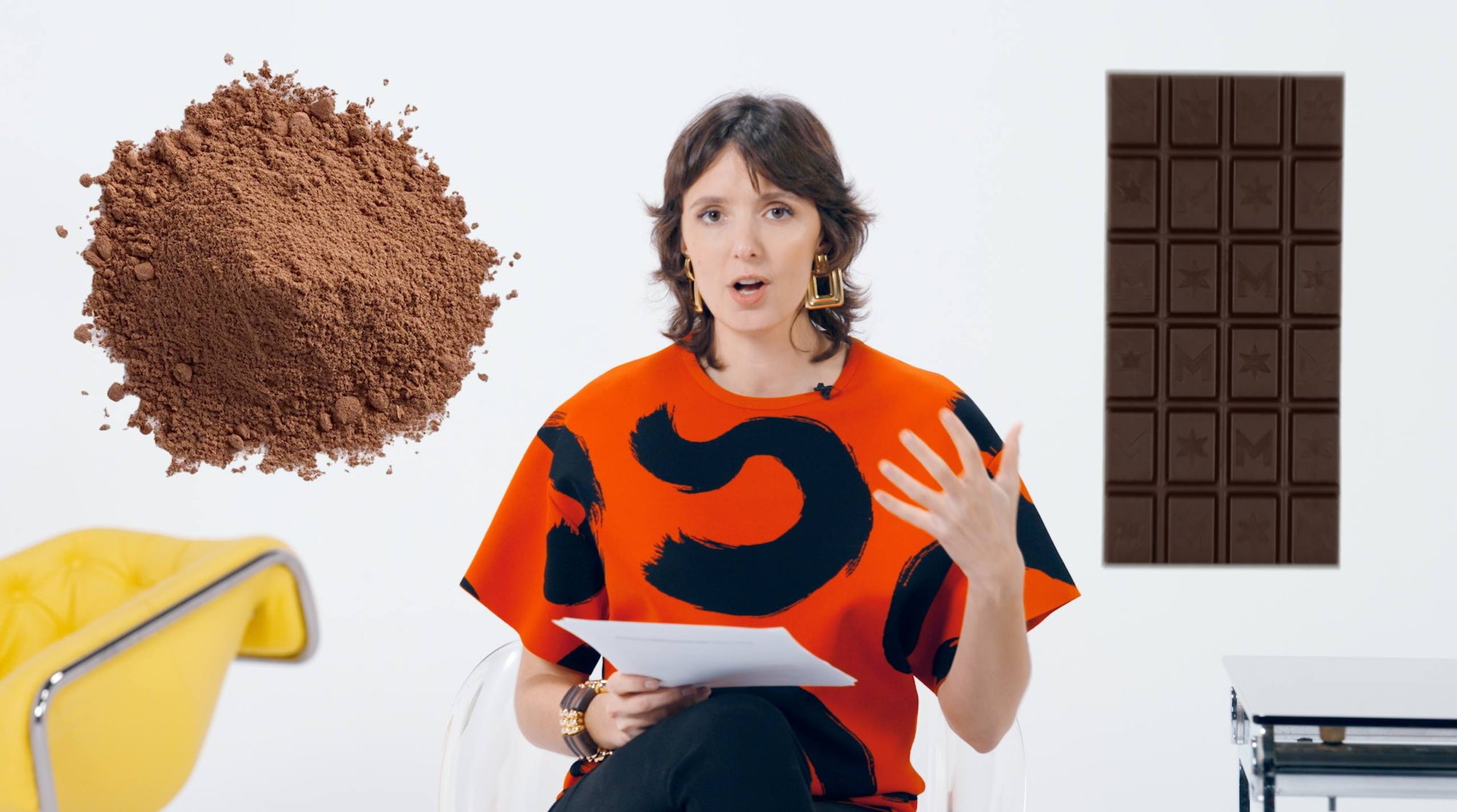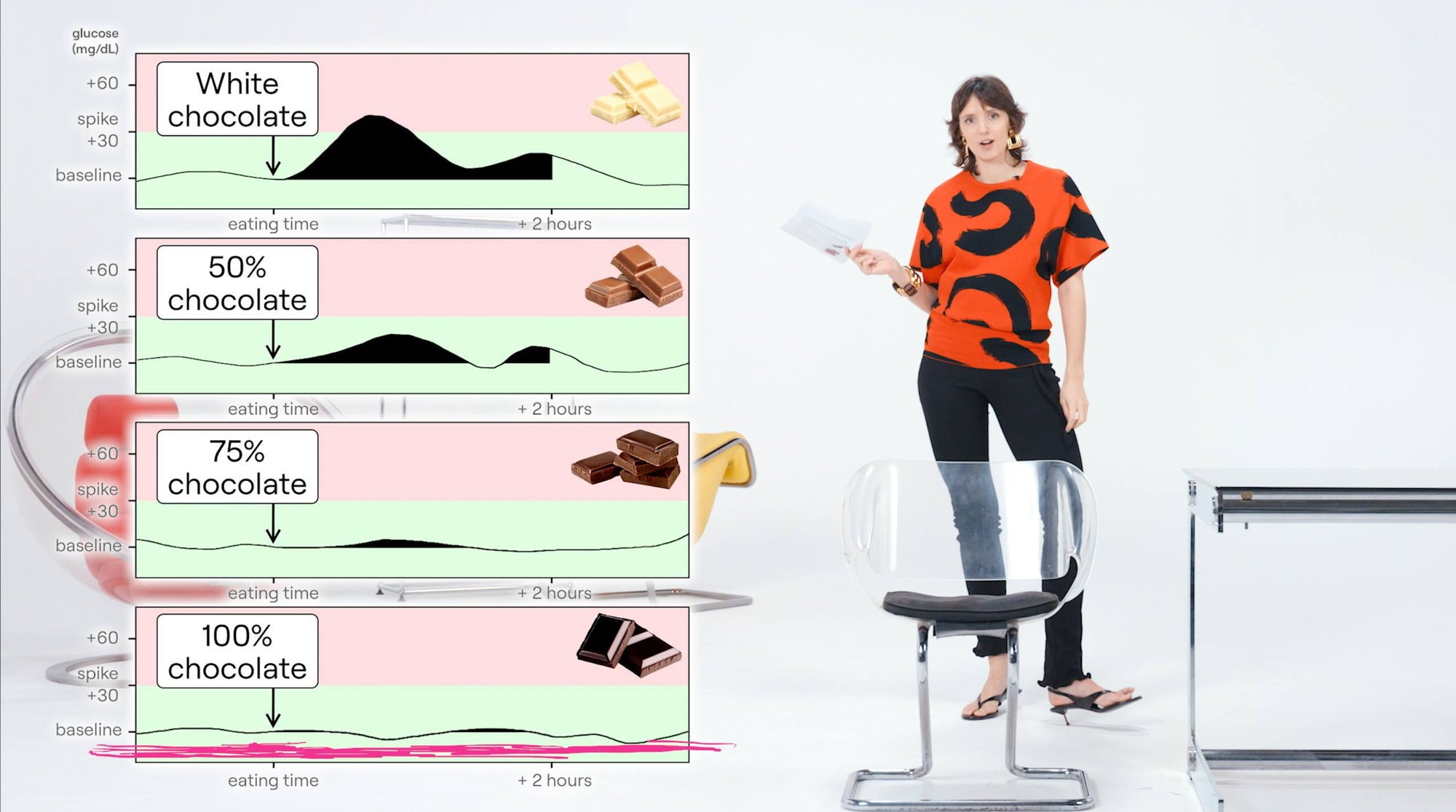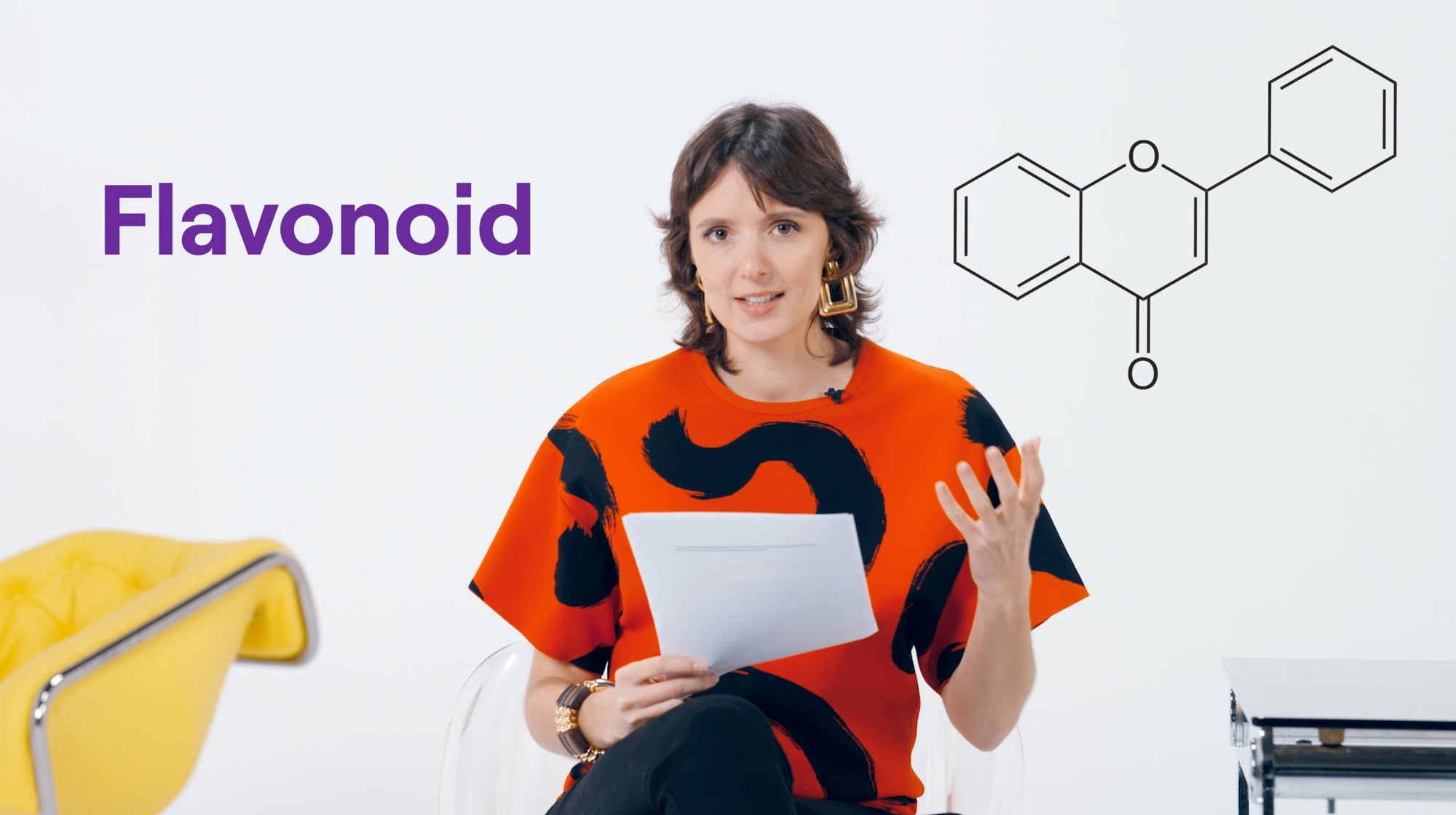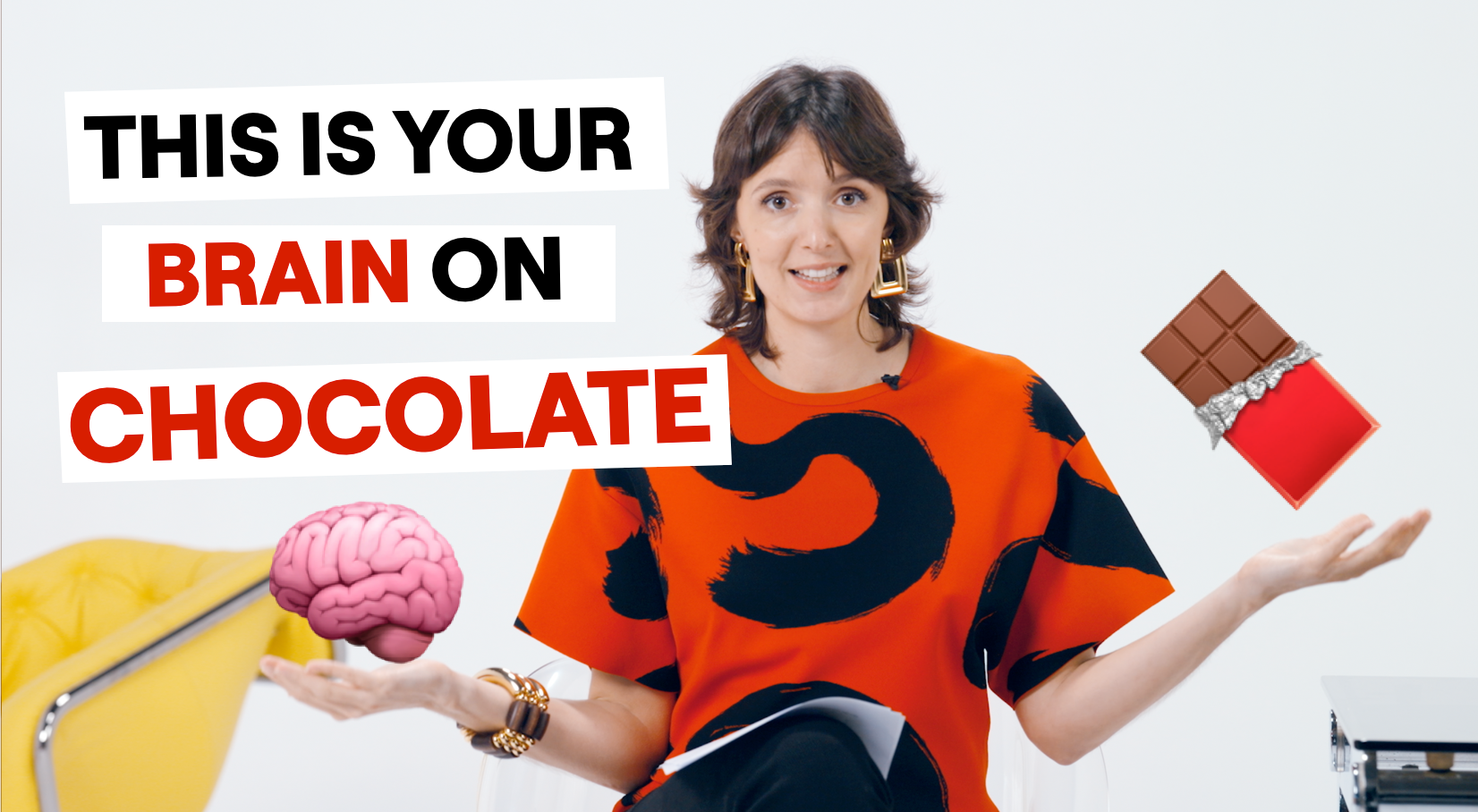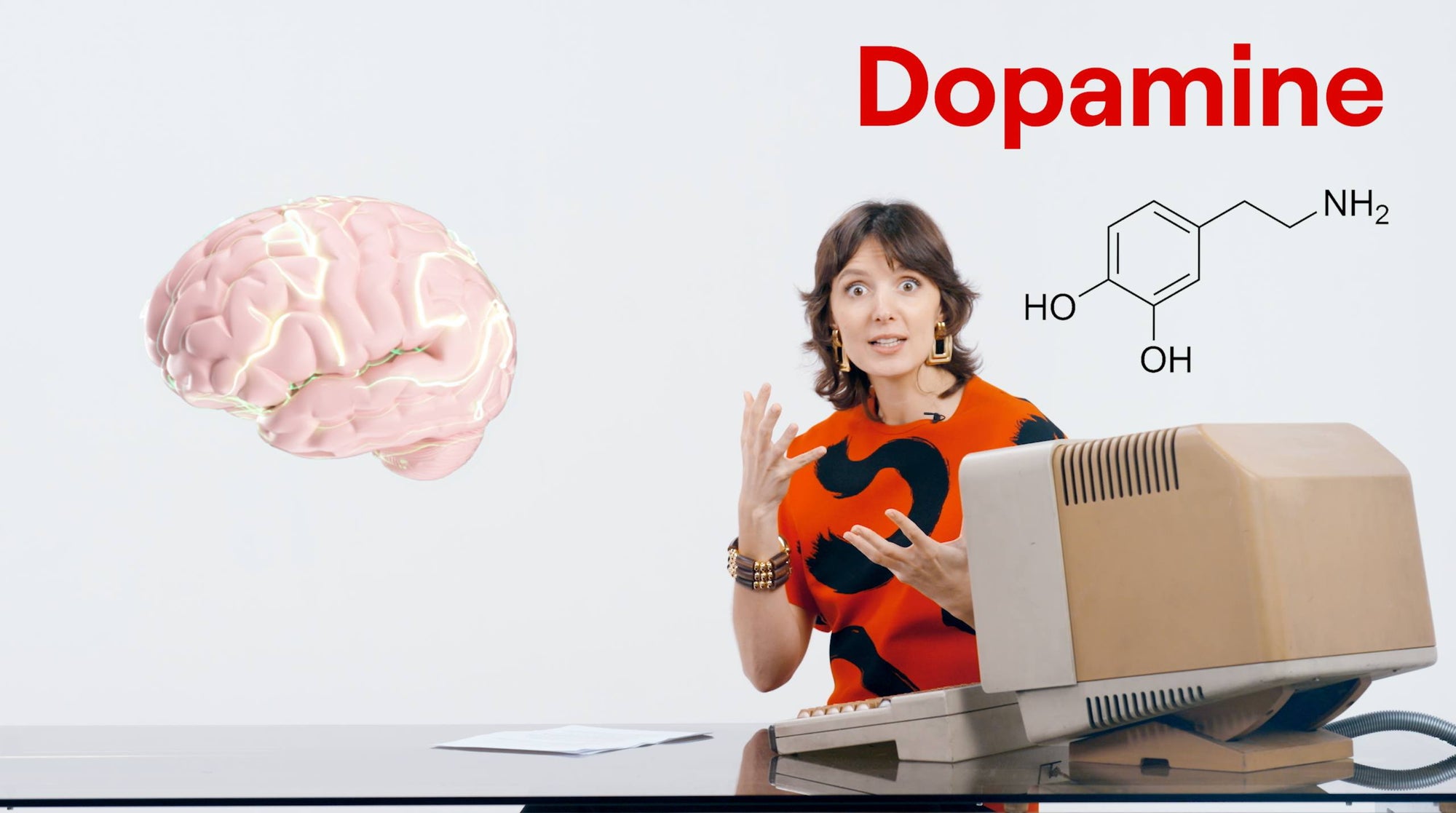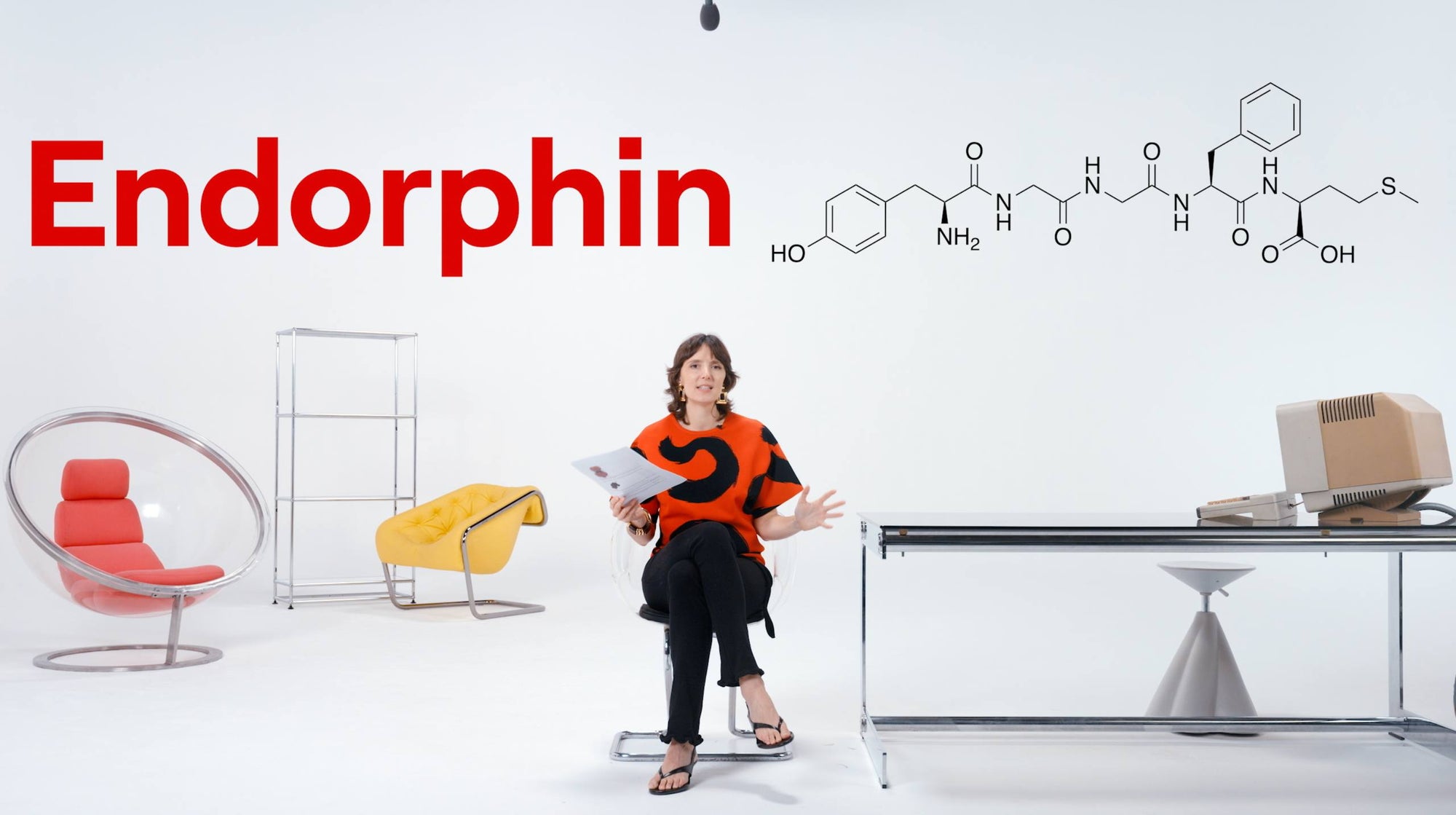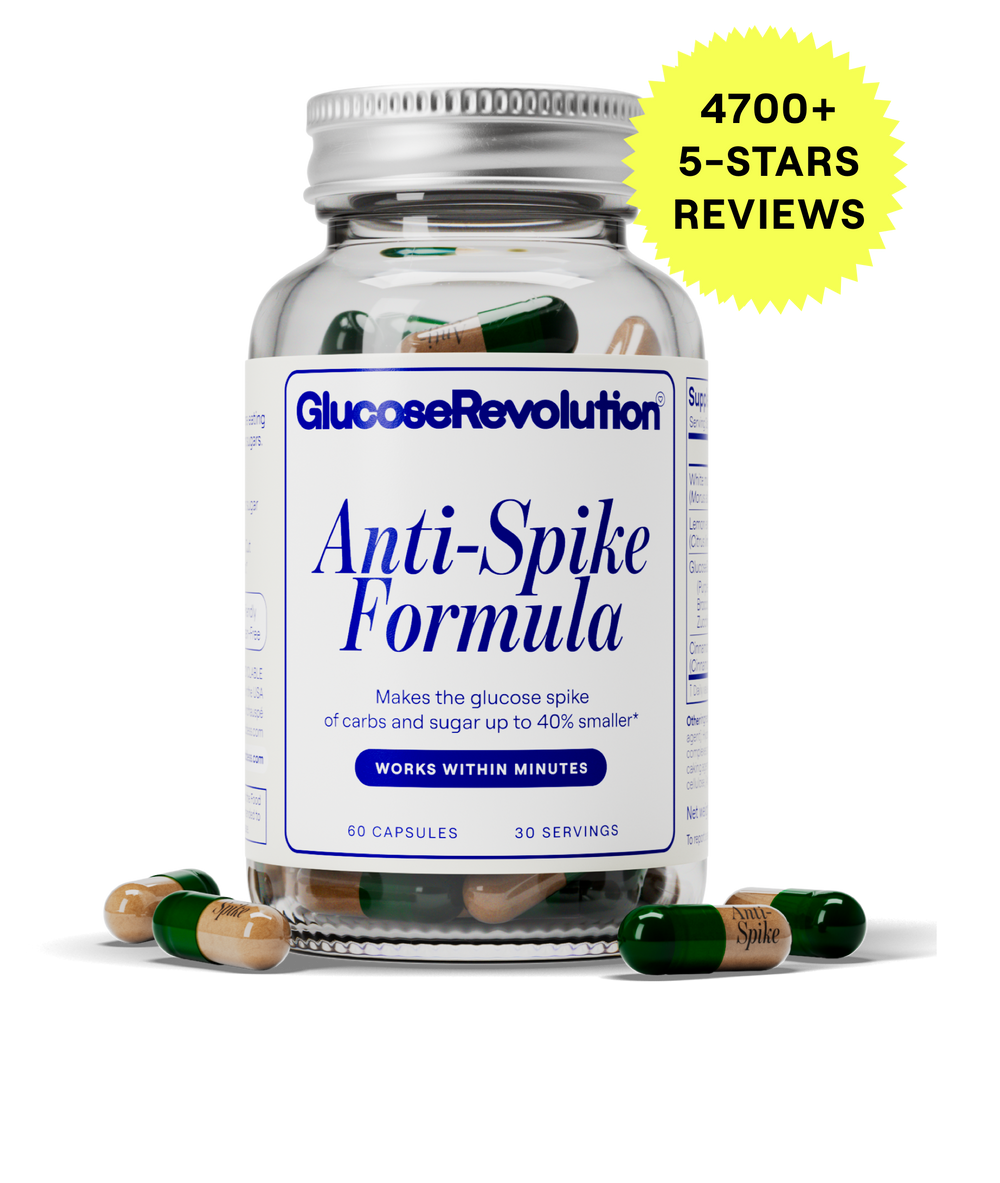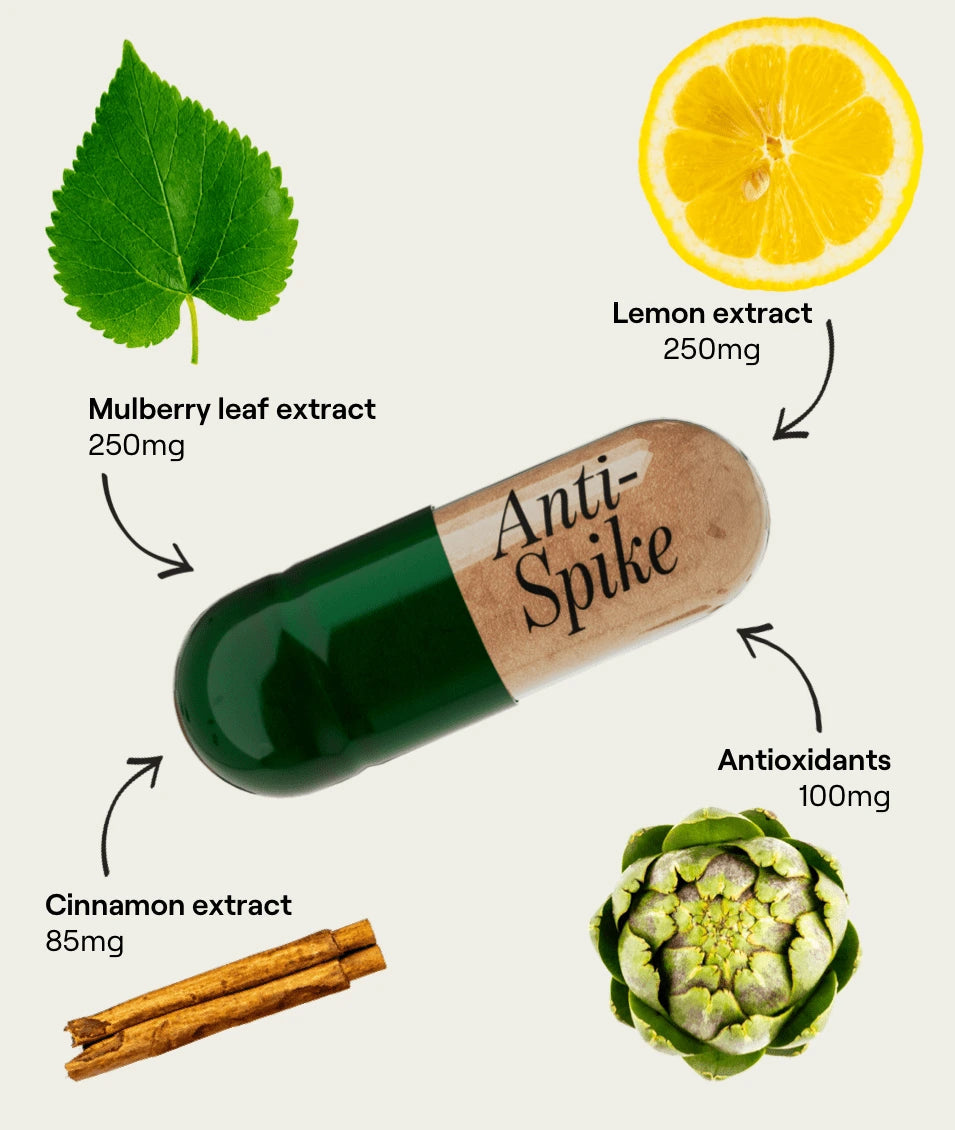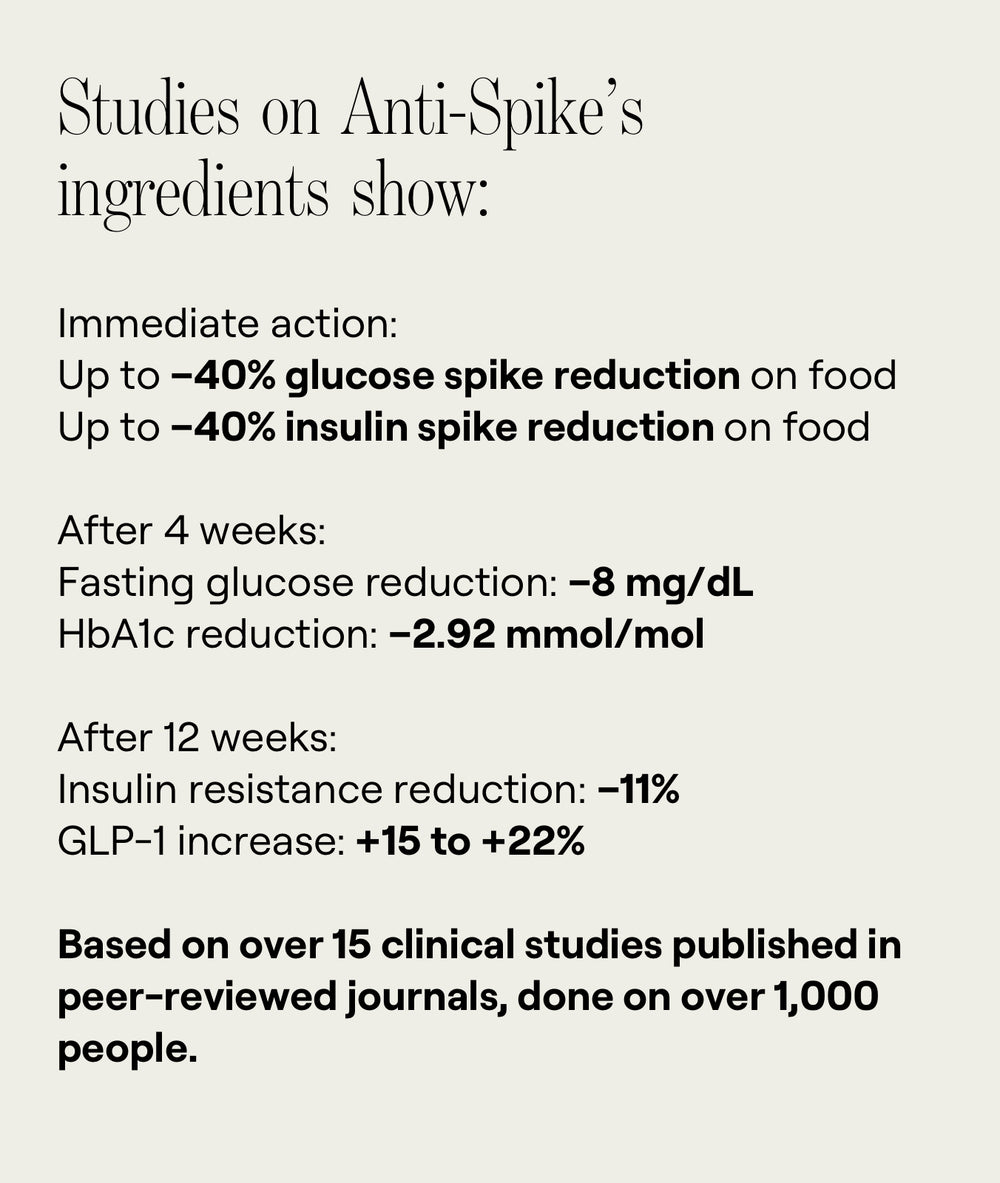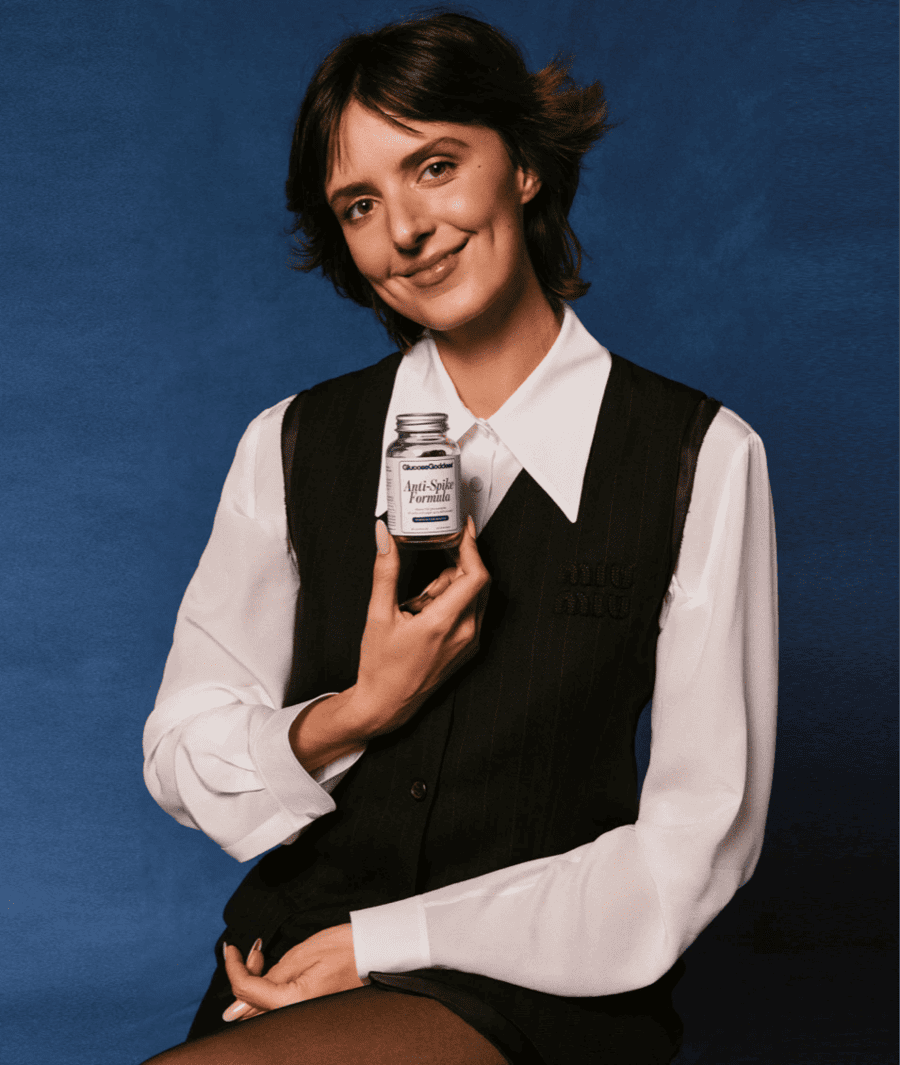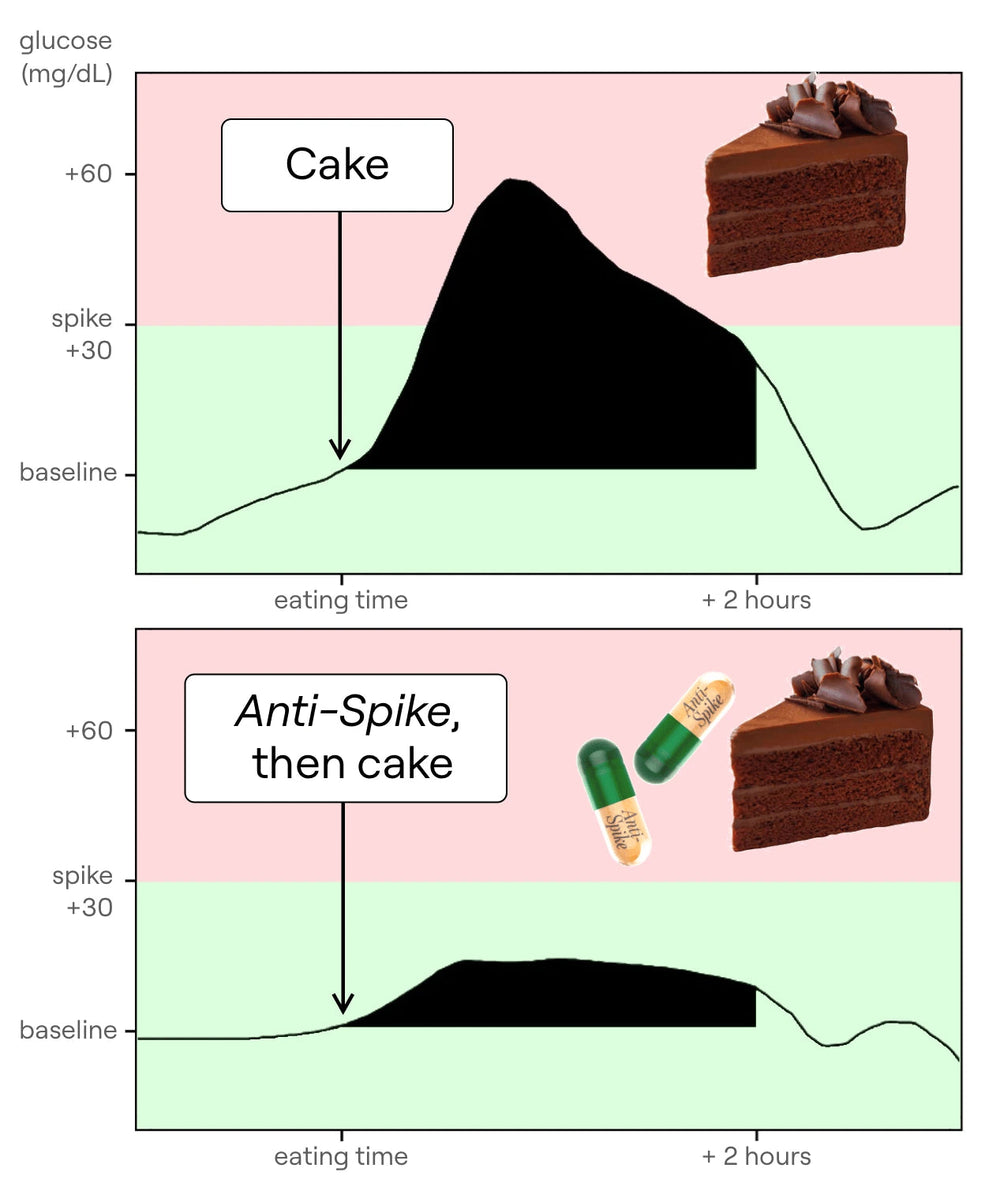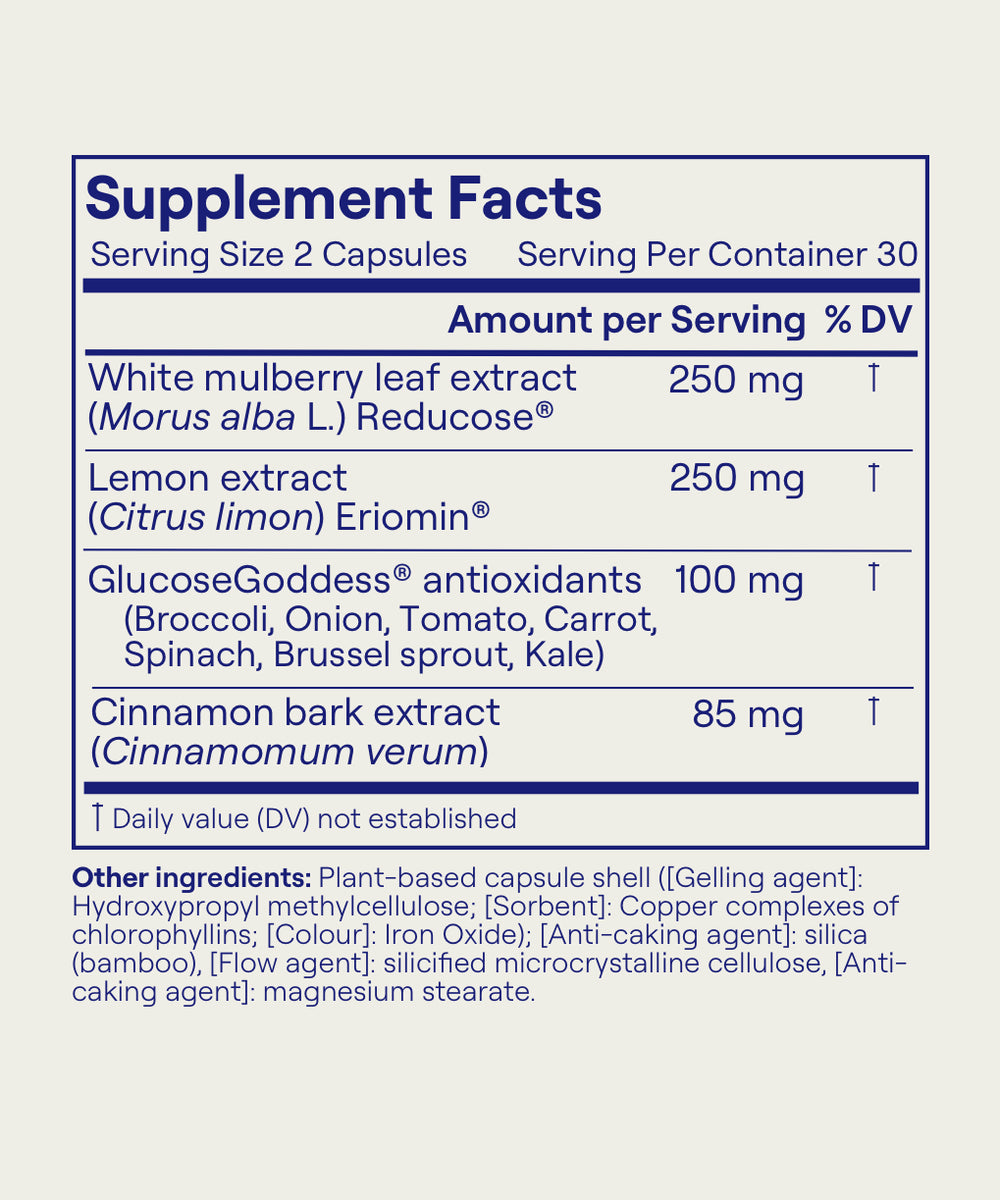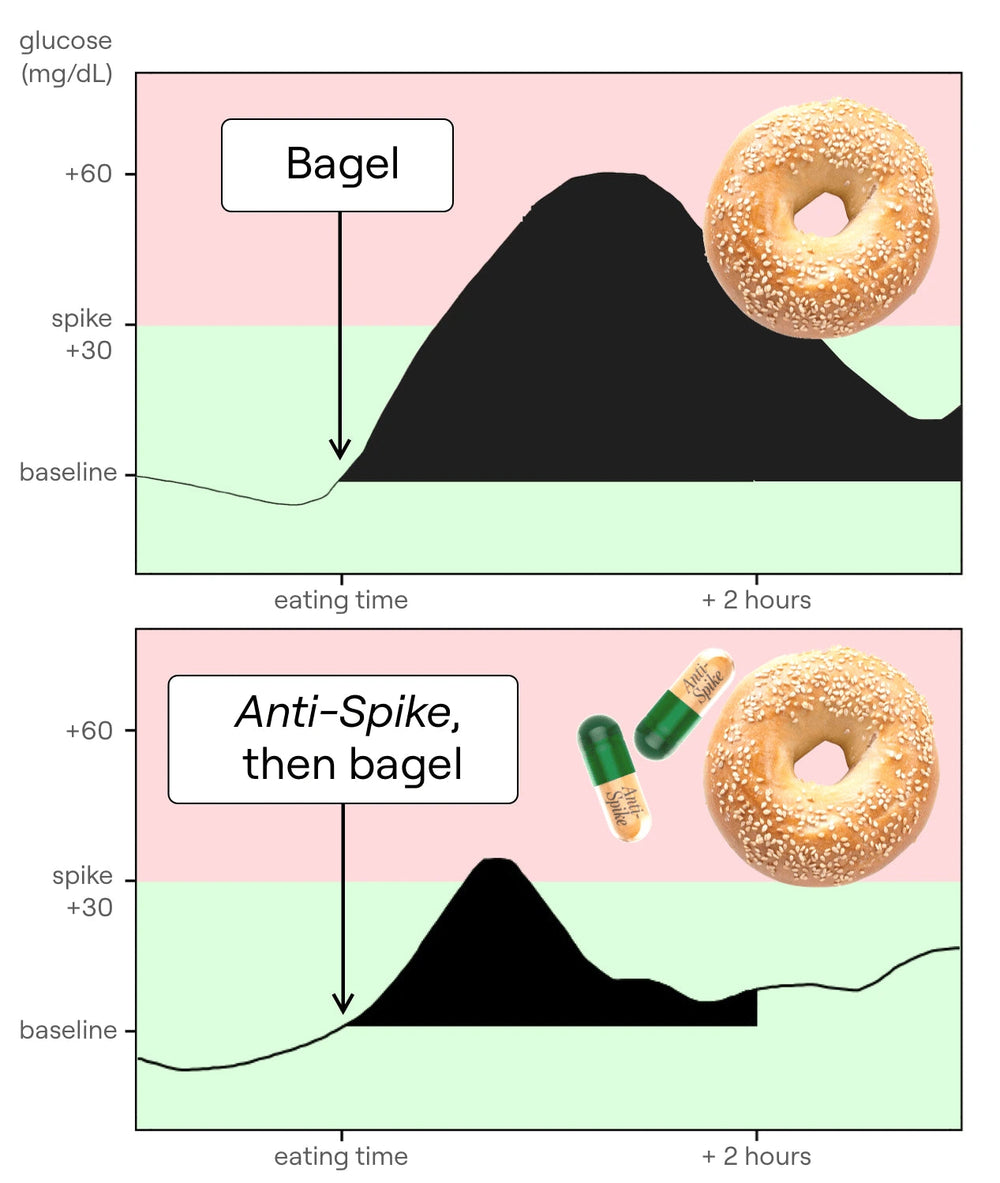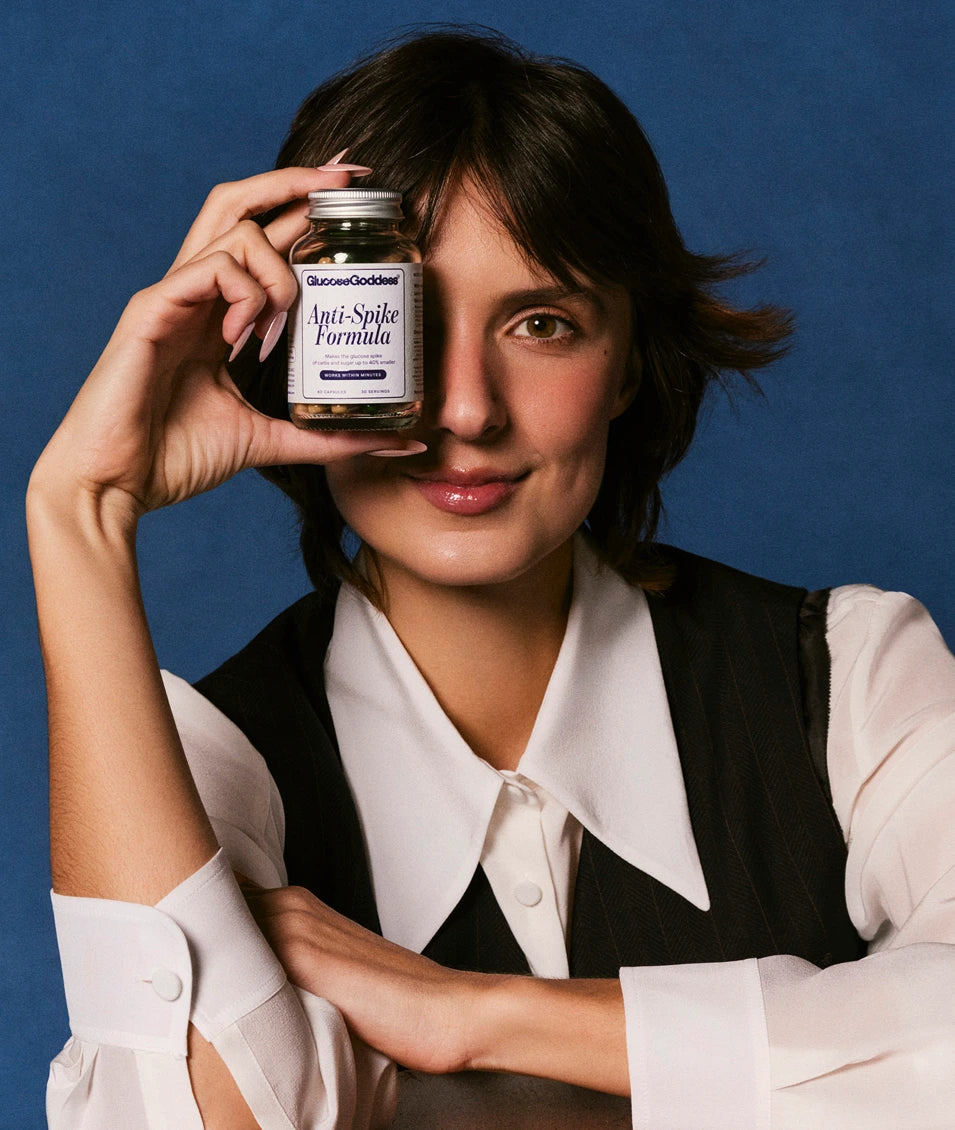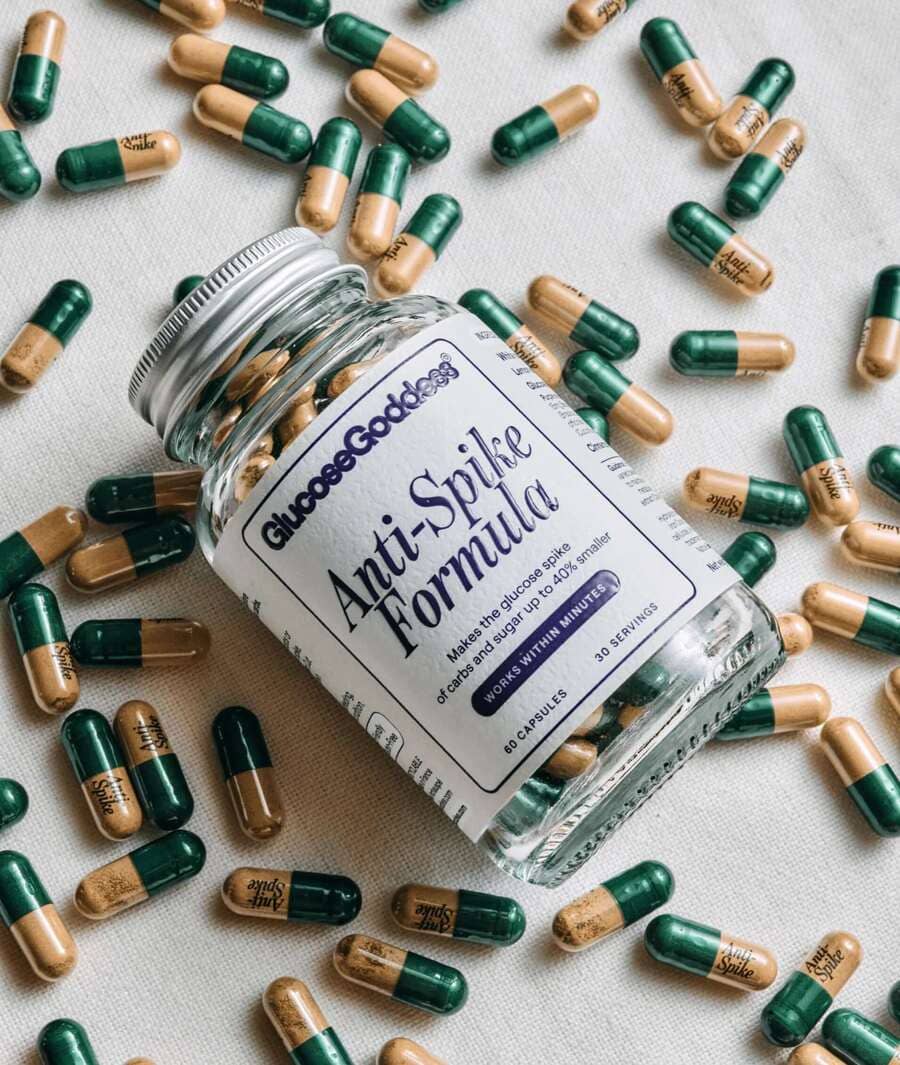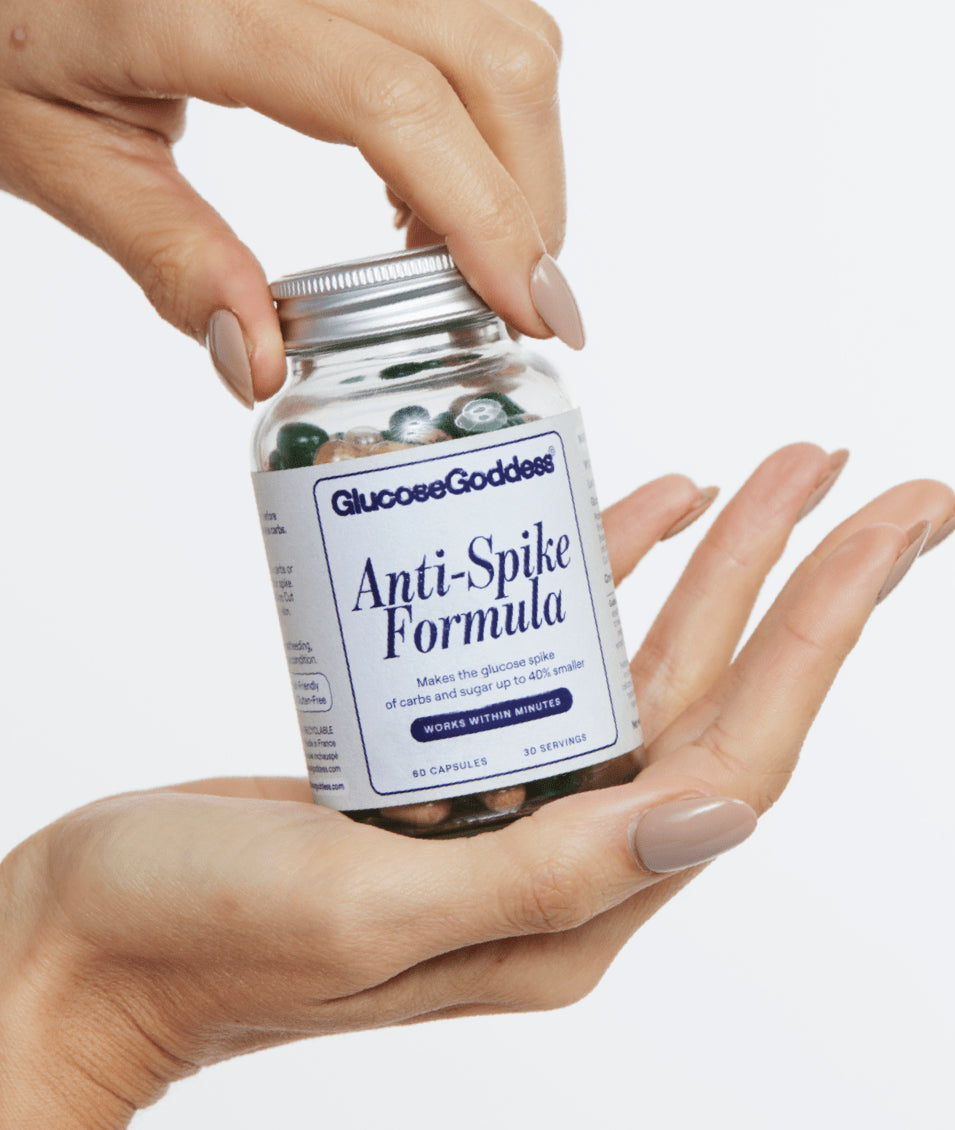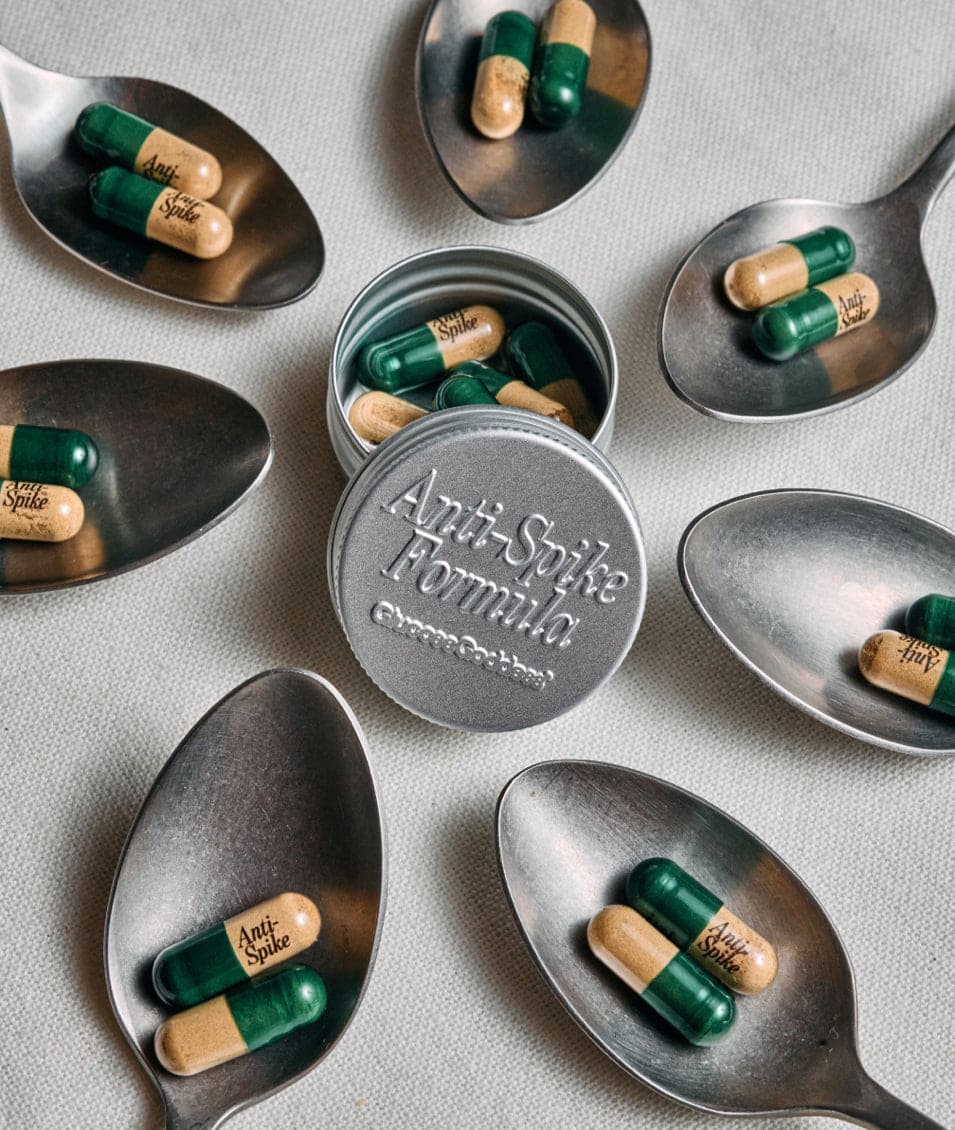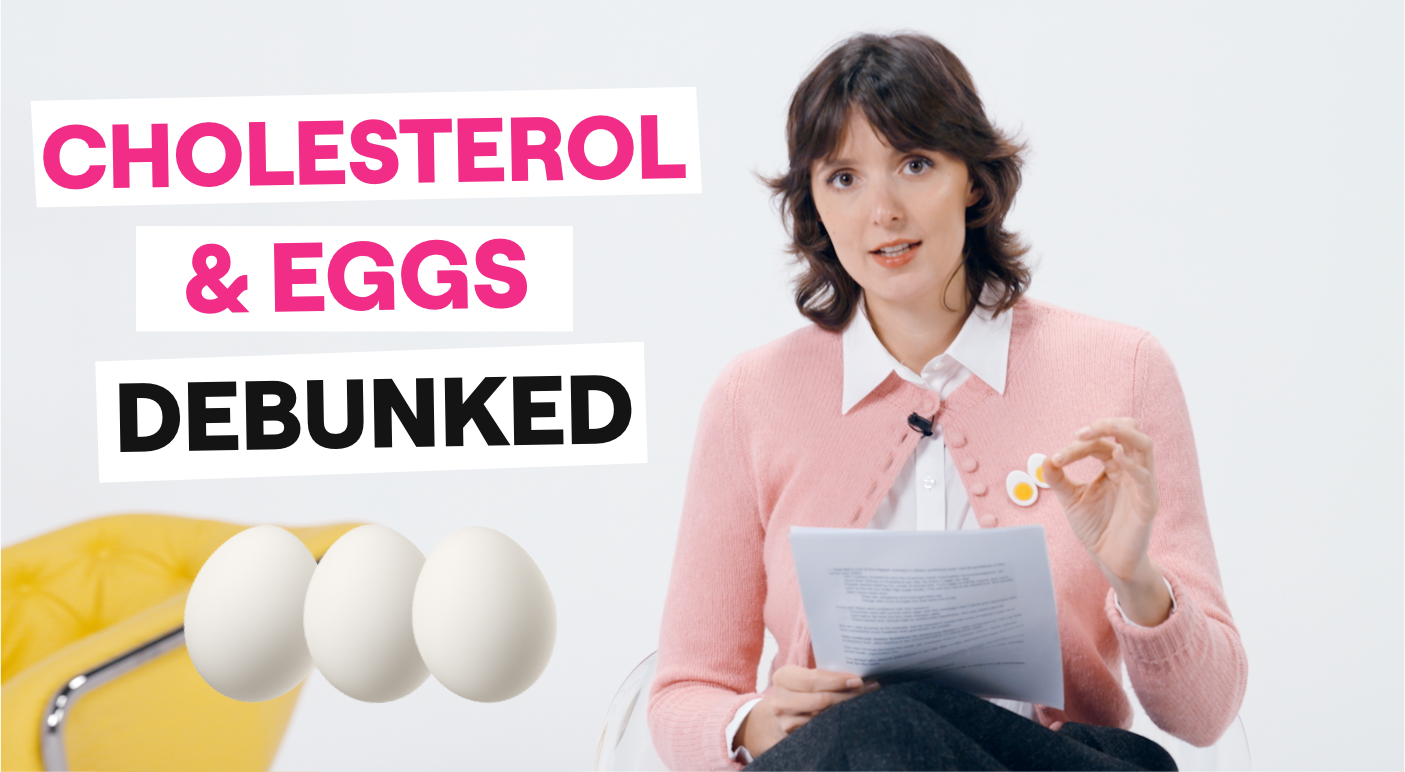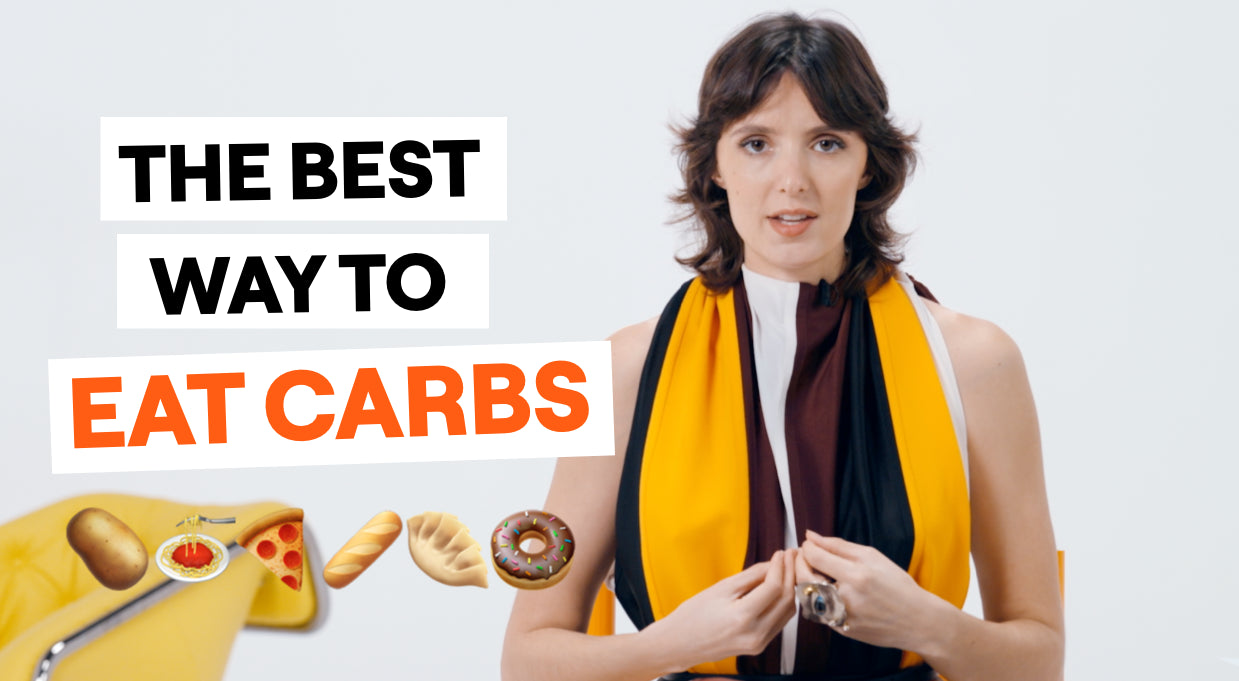SCIENCE EPISODE
Chocolate & Your Brain: Drug, Treat, or Health Food?
Is chocolate a drug or is it a health food or is it something else?
Hello angels and welcome to the glucose goddess show. I'm Jessie Inchauspé. I'm a French biochemist obsessed with helping you understand food science and your health. So today we're talking about chocolate. It's about what chocolate does to our brain, to our body, in what ways chocolate is similar to drugs and weed, and how chocolate affects our heart. Is it actually good for us, or is it just a drug? What's really going on? So, we're going to dive into all the science of chocolate. And I'm a massive chocolate fan, so I'm excited to talk about it.
Okay, first things first. Did you know that the Latin name for the cacao tree is Theobroma cacao L which means "Food of the Gods"? I'm not even joking. Today people eat on average 1 kilo, so 2 lbs of chocolate per person per year. That's like 10 bars of chocolate per person per year, which if you're me doesn't sound like a lot. I'm probably at like, I don't know, 50 bars of chocolate per year. So anyway, there's some really interesting molecules in chocolate and one of the main ones is called a flavonoid. It's an antioxidant and I'll explain what it means in a second, but it's important that you remember that because it's been linked to heart health.
So first of all, how do we actually make chocolate? Like where does it even come from? So here's how it works. This is a photo showing you the fruit of the cacao tree. And if you open this fruit, you see the cacao beans, which are all these little white pinkish beans. So these beans are extracted, they're dried, they're fermented, they're roasted, and they turn into essentially once you grind them up, cacao powder. So 100% cacao powder or 100% cacao chocolate contains both the cacao solid and the cacao fat, cacao butter. So, if you want to make 100% dark cacao chocolate, you just grind these up and put them into a chocolate bar essentially. But it is very, very bitter. And I don't care what 60% of you said. I don't believe it that you eat 100% cacao chocolate cuz even I tried and I was like, "This is not happening." Maybe like 1% of people are able to eat it. But 100% cacao is extremely bitter. And the texture also is quite intense. So even if you have the tiniest bit on your tongue, it's like it's a big big hit of that intense strong bitter flavor.
So what do food manufacturers do? What do people who make chocolate do? Well, they add other things to make the chocolate bar. Some very common things to add are sugar, milk, vanilla, all sorts of things. And basically, they dilute the original cacao content. So to make 75% cacao chocolate, the chocolate bar would be made up of 75% of the cacao, both solid, and cacao butter, and then 25% of other stuff like sugar and milk. So for example, if you're making milk chocolate, you might make it with 50% cacao and then a lot of milk, a lot of sugar. If you're making white chocolate, you only keep the cacao butter, the cacao fat, and you get rid of the cacao solid, which has the healthy antioxidant in it. And the lower in the percentages you go, the more sugar generally that chocolate bar has and the less of the original just roasted and pulverized cacao bean.
If you want the maximum amount of this flavonoid, this antioxidant, then you should be having 100% cacao dark chocolate. But again, that's really really difficult. So just so you remember, the healthy part of the chocolate is in the original bean in the form of this flavonoid. And then everything else that is added to it is not going to be for our health. It's going to be for the taste of the chocolate bar.
So if we look for example at the glucose spike of different percentages darkness chocolate you will see right here that the 100% cacao chocolate has barely no glucose spike because there's no sugar that's been added to it. Then we go to 75 slightly bigger glucose spikes and then we go to 50 even bigger glucose spikes. And then we go to white chocolate and in that case it's really a lot of milk and a lot of sugar. So you're getting a really big glucose spike. And again, the glucose spike is just representing how much sugar is in that bar. So remember, the smaller the percentage of the chocolate that you're eating, the higher it is in sugar and the less high it is in the healthy original bean. It's sort of the difference between tomatoes and ketchup. Like, yeah, sure, ketchup is made from tomatoes, but really there's been so much stuff added to it that it doesn't resemble at all the original tomato. You can't say that ketchup has the same health benefits as the tomato because ketchup has a lot of sugar in it, for example. So, chocolate is the same. As soon as you start adding milk and sugar to a bar, you're reducing the health benefits and adding more things that could potentially be detrimental. Or if you want to see it another way, you're adding more things that are there just for pleasure and enjoyment and not necessarily for your health.
So let's look at all of the interesting molecules that are present in chocolate and that can explain perhaps the health benefits or the perceived health benefits and that can help us answer the question is chocolate a drug or is it a health food or is it something else?
So flavonoids are antioxidants. And I'm not sure if you've heard about the term antioxidants before. Antioxidants are really cool. They're like little um little defenders that you have in your body that go and grab things that are called free radicals. So free radicals, they make damage to your body. They poke holes in the cells. They damage your DNA. They wreck all sorts of havoc in your body. And antioxidants are there to neutralize them. So they grab the free radicals and they're like, "Stop that. Stop that. Stop that. Stop that." Now, our body is able to naturally neutralize a small amount of free radicals every day. But because of the way that we live and we eat and our lifestyle, we have more and more free radicals in our body and they're causing more and more damage. So in this case, antioxidants are very helpful because they help us reduce that damage that is caused by the free radicals.
So that is what the flavonoid does. It reduces the activity. It neutralizes the free radicals that are roaming around in your body and causing problems. In terms of content of antioxidants, just so you know, 100% dark chocolate, the very bitter kind with nothing added to it, just the beans ground up into a bar, 100% dark chocolate, contains five times more antioxidants per weight than blueberries. And berries are something that are very high in antioxidants. But of course, you know, it's very hard to eat 100% dark chocolate when it's very easy to eat blueberries. So, it's probably easier to eat, you know, five blueberries than to eat the equivalent of one blueberry of 100% dark chocolate. So, even though yes, dark chocolate contains this antioxidant, there are other sources around that are maybe perhaps an easier way to get this antioxidant. But if you love 100% dark chocolate, that's good for you because there's this really powerful flavonoid in it that is helping your body.
So this is basically what's been associated in the studies as the miracle thing found in chocolate and it's been associated with many heart health benefits. There's a study called the health effects of chocolate and cacao, a systematic review. And so in this study, the scientists do a big review of all clinical trials where they tested the consumption of 75% dark chocolate with a control group. And this control group is eating something that tastes like chocolate and resembles chocolate but is not chocolate and does not contain the flavonoids. And then the scientists measure the impact on various markers of health and they compare both groups. And this is a really great robust way to see if adding 75% dark chocolate which is not 100% so it's even lower in flavonoids than the 100% if adding that to our day actually helps our heart health.
And this is what the review found. They found a reduction in triglycerides compared to the control. So having high triglycerides is a marker for heart disease risk. They did find that when you add 75% dark chocolate to your days, it reduces your triglycerides. This is, and spoiler alert, this is kind of the only thing that this massive review study found in terms of the benefits of chocolate. Okay? So, they looked at lots of other stuff and they found no impact, no improvement from the dark chocolate. So for example, they found no impact on blood pressure. Basically, some studies found a good impact. Some studies found no impact or negative impact. So this review overall says no impact on blood pressure, no impact on total cholesterol or LDL or HDL, no impact on body weight, no impact on improving glucose levels, and also interestingly they found no impact of chocolate on acne. Because for a long time we've believed that chocolate causes acne lesions and pimples which is something that honestly I feel like I've made the experience of. So maybe it's just a personal thing but essentially in this review study they found that chocolate had no benefits, no measurable benefits on health other than on triglyceride levels.
Now, if you like chocolate, you might think, "Okay, well, maybe there's some other stuff going on because these are just metabolism markers." And when I eat chocolate, I feel really good and it helps me be motivated when I'm working or when I've had a hard day. I like having chocolate because it makes me feel better. There's something going on in the brain and chocolate. And I won't disagree. There is something going on. So, let's look a little bit at what is happening in the brain.
So the first thing about the impact of chocolate on your brain. Now unless you're eating 100% dark chocolate, dark 100% cacao dark chocolate, your chocolate has sugar in it. And sugar releases dopamine in our brain. Dopamine is the pleasure molecule. It makes us feel good. It makes us feel like we're having a good time. It's the same molecule that gets released when you have sex, when you play video games, when you do drugs. That same molecule gets released when we eat sugar. And just because chocolate contains sugar, it's also releasing this dopamine. So that's one of the effects that you feel in your brain when you eat chocolate. It's not about the chocolate, it's about the sugar. So if you ate something else that had sugar in it that wasn't chocolate and if you ate the same amount of sugar overall, you would still get this dopamine response in your brain just from the sugar.
Then scientists have found two other compounds in chocolate that kind of made them go, "Aha, now we know why chocolate makes us feel so good." Because these compounds are super strong and powerful and interesting. So the first compound that scientists found in chocolate is a compound called anandamide. Okay, so anandamide binds to the same receptors in your brain as cannabis. So the scientists were like, "Oh my god, maybe that's why chocolate makes us feel relaxed and zen." It's because it has the same effect in the brain as cannabis. But wait, then the scientists figure out that actually the anandamide in chocolate never actually makes it to the bloodstream or to the brain. So that could not be it. There's the compounds you find when you look at the chocolate itself. And then there's actually what happens when we eat the chocolate. So this was not the solution and the answer to why everybody loves chocolate so much.
Then scientists found another compound in chocolate that they thought could explain the effects of chocolate. It's called PEA or Phenyletylamine. It's a compound that stimulates the brain in a similar way to amphetamines. And amphetamines are a class of compounds that for example you find in ADHD medications that the drug speed is made of. They make you feel really alert and focused and are very intense brain stimulants. However, again, scientists found that once you eat chocolate, actually this PEA is rapidly broken down by enzymes. So, the effects on your mood are not very sustained. They're very subtle and short-lived. And this was unfortunate because they thought maybe this is why we get euphoric when we eat chocolate. So, the mystery continues.
Now, today, scientists believe that what's going on is that chocolate contains two things. First of all, chocolate contains tyrosine, which is a precursor to dopamine. So, not only does it stimulate dopamine in the brain, it also helps your brain make dopamine. And again, dopamine is the pleasure molecule. And then second thing, cacao and chocolate contains endorphins. And this also impacts the brain and makes you feel a sense of reward and peace and mood that's really steady and even and good.
So ultimately they think it's the dopamine precursor and potentially also these endorphins. But I don't know if you feel this way but personally when I'm working I feel like having some dark chocolate really makes me focus more. And so I was looking into the science on this and there's a paper that looked at the effect of chocolate on cognitive performance. It's called literally the neuroprotective effects of cacao flavanol and its influence on cognitive performance. And the study results are very mixed. It's a review paper. So some studies show that yes, when you do eat chocolate, you perform better on cognitive tasks. And other studies find that that's not at all the case. But what scientists did discover is that chocolate also contains theobromine. Theobromine is a compound that's similar to caffeine but is actually more mild. And they think that's why we get this sort of brain stimulation effect when we eat chocolate.
So I find this all quite interesting. It's not like chocolate contains this very special unique compound that is found nowhere else that could explain why we love it so much. It's possible that we love chocolate so much just because of the taste and not because it has anything specifically magical in there going on. So for example, you know, we talked about the sugar that releases dopamine. Any sweet food is going to release dopamine in the brain. endorphins. You can get that in so many other ways like exercise for example, theobromine. I mean having caffeine, having a tea or having a coffee is going to give you way more of that boost. And then in terms of the effects on your heart health that the review study found as I explained, you would find this effect from antioxidants in many other foods like leafy greens, like berries. Chocolate is not that unique in terms of the molecules it contains and the effect it has on our brain and on our body.
I think I mean this is a hypothesis cuz we don't really know. I think it's just a taste that we really like. But here's the catch. Most of us when we eat chocolate, we're eating chocolate that contains a lot of sugar. So, even though there are some benefits to the antioxidants, for example, really the amount of sugar in the chocolate we eat can have some very detrimental side effects that could outweigh the positives on our heart health, for example. So, I just want you to take this away. If you eat chocolate that is not 100% chocolate, you still have to see this as something that is high in sugar. So, you still have to think about it like you would dessert or a pleasure food, not something that you should force yourself to eat for the health benefits because you could get the benefits in other foods like teas, like berries, like leafy greens without the big hit of sugar.
So, my top tips if you love chocolate like me is to never have it on an empty stomach. Avoid it in the morning. Always have it as dessert, not as a snack between meals. And if you want all my glucose hacks to help you manage your sugar intake, there's a PDF in the description of this episode that'll recap all of them.
And then one final note on the acne thing. I just want to circle back on that really quickly. I can imagine that what's actually going on when people say, "Oh, eating chocolate gives me pimples." is that they have chocolate with a lot of sugar in it and it's actually the sugar causing the inflammation in the skin potentially.
Anyway, so chocolate is kind of a mystery to me. Um I hope this was interesting and um yeah, keep eating chocolate now you know more about it, but chocolate is very tasty. So I'm going to keep eating chocolate even though it really doesn't do that much for us, but it's super tasty. So I'll see you next time.
 Anti-Spike Supplement
Anti-Spike Supplement
 The Recipe Club
The Recipe Club
 Course
Course
 50 Breakfast Recipes
50 Breakfast Recipes
 50 Veggie Starter Recipes
50 Veggie Starter Recipes
 20 Vegan Recipes
20 Vegan Recipes
 20 Gluten-Free Recipes
20 Gluten-Free Recipes
 The 10 Glucose Hacks
The 10 Glucose Hacks
 Vinegar
Vinegar
 Alcohol
Alcohol
 Fasting
Fasting
 GLP-1
GLP-1
 What to Eat Before & After Exercise
What to Eat Before & After Exercise
 Protein
Protein
 PCOS
PCOS
 Menopause
Menopause
 My MRI Story
My MRI Story
 Breakfast
Breakfast
 Supplements
Supplements
 Clothes on Carbs
Clothes on Carbs
 Eggs & Cholesterol
Eggs & Cholesterol
 Chocolate
Chocolate
 Food Labels
Food Labels
 Veggie Starters
Veggie Starters
 Move After Eating
Move After Eating
 Why Glucose Matters
Why Glucose Matters
 Glucose Revolution
Glucose Revolution
 The Glucose Goddess Method
The Glucose Goddess Method
 9 Months That Count Forever
9 Months That Count Forever

